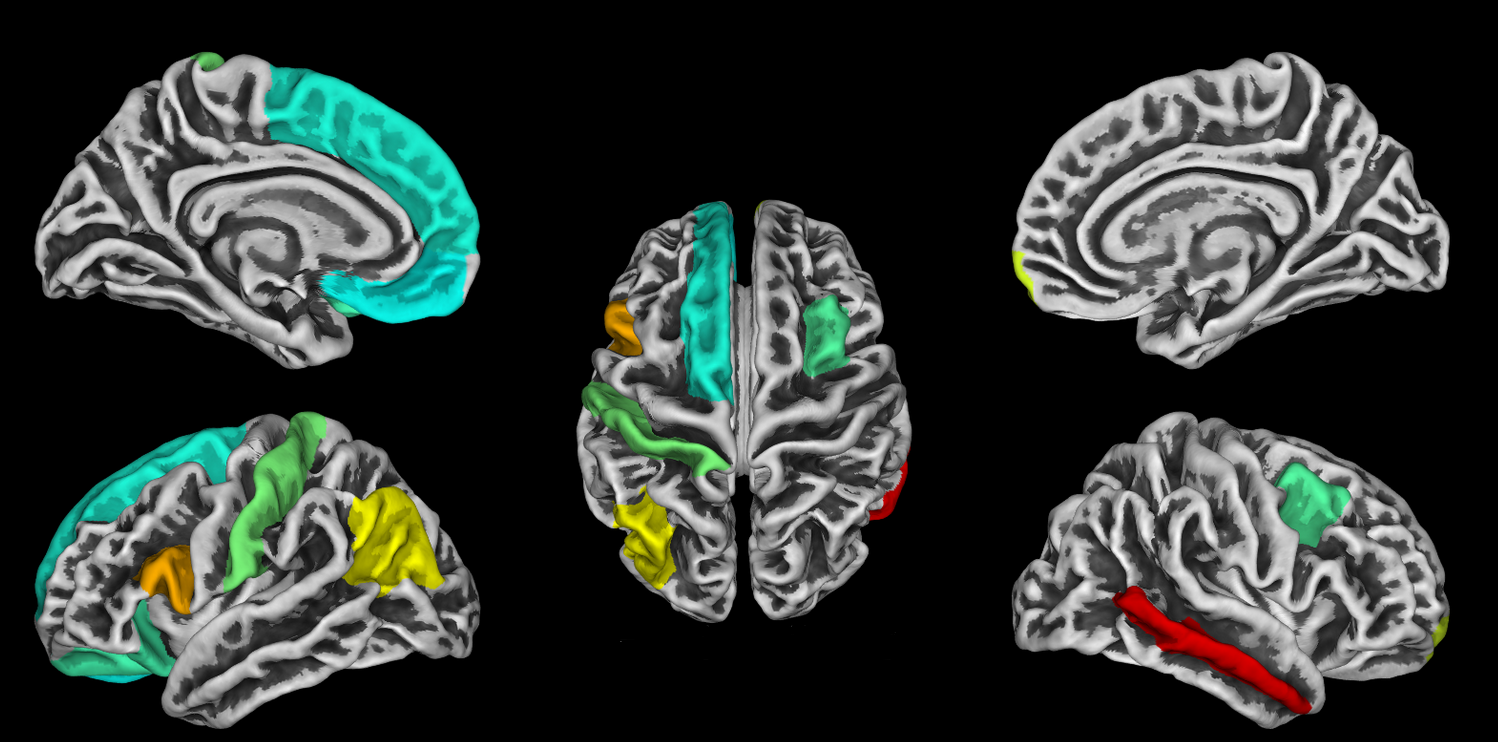I am a postdoctoral researcher interested in the neurocognitive mechanisms underlying
episodic long-term memory. I am investigating the role of subcortical and cortical circuits in
upregulating memory for exceptional events using a variety of methods including MEG and
deep brain stimulation.
I completed my PhD in Lund where I studied the neurocognitive mechanisms underlying
selective memory retrieval and memory intrusions under the supervision of Mikael
Johansson. I have gained postdoctoral experience from working on retrieval-induced
updating and the effects of ageing on episodic memory with Zara Bergström at the University
of Kent and on the role of reward and emotion in memory encoding with Deborah Talmi at
the University of Cambridge.
Publications:
- Hellerstedt R., Moccia, A., Brunskill, C.M, Bowman, H., & Bergström Z.M. (2021).
Aging reduces ERP markers of recognition despite intact performance: implications
for forensic memory detection. Cortex doi:10.1016/j.cortex.2021.03.015. - Kerrén, C., Bramão, I., Hellerstedt, R. & Johansson, M. (2021). Strategic retrieval
prevents memory interference: The temporal dynamics of retrieval orientation.
Neuropsychologia 154, doi: 10.1016/j.neuropsychologia.2021.107776 - Svärd, D., Erfurth, E.M., Hellerstedt, R., Mannfolk, P., Mårtensson, M., Sundgren P.,
& Follin, C. (2021). Cognitive interference processing in adult survivors of childhood
acute lymphoblastic leukemia using functional magnetic resonance imaging. Acta
Oncol 1–8 (2021) doi:10.1080/0284186x.2021.1987514. - Svärd, D., Follin, C., Fjalldal, S., Hellerstedt, R., Mannfolk, P., Mårtensson, J.,
Sundgren, P., & Erfurth, E.M. (2021). Cognitive interference processing in adults
with childhood craniopharyngioma using functional magnetic resonance imaging.
Endocrine 1–9. doi:10.1007/s12020-021-02824-9. - Allen, J., Hellerstedt, R., Sharma, D. & Bergström, Z. M. (2020). Distraction by
Unintentional Recognition: Neurocognitive Mechanisms and Effects of Aging.
Psychology & Aging 35, 639–653. doi:10.1037/pag0000398 - Davidson, P., Hellerstedt, R., Jönsson, P., & Johansson, M. (2020). Suppression-
induced forgetting diminishes following a delay of either sleep or wake. Journal of
Cognitive Psychology, 32, 4-26. doi:10.1080/20445911.2019.1705311 - Hellerstedt, R., Johansson, M., & Anderson, M. C. (2016). Tracking the intrusion of
unwanted memories into awareness with event-related potentials. Neuropsychologia,
89, 510–523. doi:10.1016/j.neuropsychologia.2016.07.008. - Hellerstedt, R., & Johansson, M. (2016). Competitive Semantic Memory Retrieval:
Temporal Dynamics Revealed by Event-Related Potentials. PloS One, 11(2),
e0150091. doi:10.1371/journal.pone.015009. - Hellerstedt, R., & Johansson, M. (2014). Electrophysiological correlates of
competitor activation predict retrieval-induced forgetting. Cerebral Cortex. doi:
10.1093/cercor/bht019.
Preprints
Satish, A., Hellerstedt, R., Anderson M. C., Bergström, Z.M. (2022). EEG evidence
that morally relevant autobiographical memories can be suppressed. BioRxiv. doi:
https://doi.org/10.1101/2022.03.01.482486
Plummer, M., Hellerstedt, R., Gibson, S.J., Simons, J.S., & Bergström, Z.M. (2021).
Active recognition attempts induce updating of face memories. PsyArXiv.
doi: 10.31234/osf.io/63qnj
